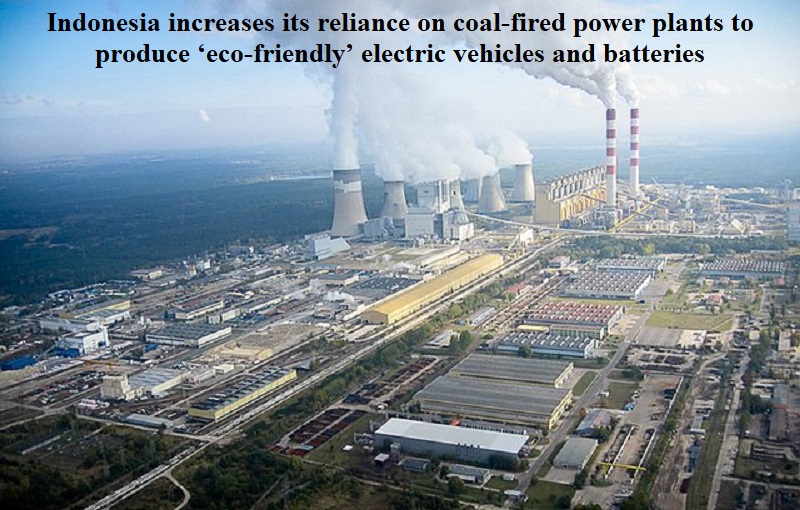
Indonesia is adopting a rather contradictory approach, increasingly relying on coal-fired power plants to support its push for “eco-friendly” electric vehicles and batteries.
This situation presents a striking irony.
Despite already ranking among the world’s top CO2 emitters, Indonesia is expanding its coal power capacity. It currently has coal power plants with a total capacity of 18.8 gigawatts (GW) under construction.
According to media reports, many of these plants will primarily serve industries and commercial consumers, rather than the regular electricity grids. This includes facilities such as aluminium smelters and nickel and cobalt processing plants, which are key components of the Indonesian government’s efforts to transform the country into a major electric vehicle (EV) hub.
Indonesia has rapidly increased its nickel production to meet global demand, experiencing a 60% surge in nickel production in 2022, contributing to half of the world’s total output.
The production of battery-grade nickel necessitates complex metal processing, leading to the establishment of new smelters across the country.
By the end of 2022, Indonesia was home to 15 nickel smelters, with plans to build at least six more.
The energy-intensive process of converting low-grade nickel into battery-grade nickel in these smelters requires significant energy. This is where “captive coal plants” come into play, specially dedicated to these industries.
A recent report from CELIOS highlights the close connection between the construction of coal plants and the production of electric vehicle batteries. Many of these plants are focused on the steel and nickel processing sectors, concentrated in the Sulawesi and Maluku islands, and often supported by Chinese companies.
While President Joko Widodo’s administration initially announced a halt to new coal-fired power plants after 2023, the ongoing construction of various plants, including captive ones, remains permissible.
This loophole was created by a 2022 regulation, diluting the moratorium and commitments to phase out coal. According to this regulation, new coal plants can continue development and operation until 2050 if they are “integrated with industries that focus on enhancing the added value of natural resources or are integral to national strategic projects contributing significantly to job creation and/or the nation’s economic growth.”
Since the nickel and aluminium smelters meet both criteria – metal refinement and national strategic importance – there is no limitation on the number of coal plants that can be established to support their requirements.

Post Your Comments